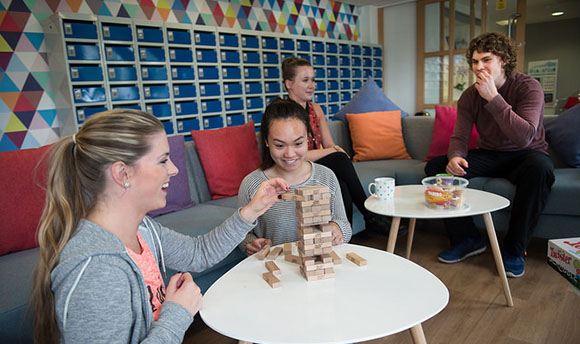The effects of climate change are being felt in every corner of the world. However, for nations which are experiencing political unrest and economic insecurity, tackling the issues of climate change at a local and national level is particularly challenging.
For example, in a country like Lebanon, which hosts in excess of a million refugees as a direct result of the Syrian conflict, dealing with water shortages is an increasingly pressing problem.
For Mozambique, dealing with conflict in the north puts additional strain on the ability of its health systems to meet the support needs of its population groups who are frequently cut off by flooding.
To identify practical adaptions to climate change in such settings, it is vital that governments and the international community develop a clearer understanding of the ways that diverse sources of fragility interact.
Researchers in global health from QMU have drawn on the local knowledge of partners in Lebanon, Mozambique, Georgia and Costa Rica to map out the range of interrelated factors which affect the way climate change is impacting people’s health and wellbeing.
Due to the way climate change is reported in the media, we often associate the climate change fight with how to reduce carbon emissions in a targeted time frame or how we prevent further climate change. Of course, this work is important. However, we need to give equal attention to a country’s ability to adapt to changes that are already upon us. The 1.5 degrees increase in temperature ‘baked in’ to the system already brings risks of more intense and frequent flooding, poorer air quality, heatwaves, increases in crop damaging pests and insects that spread disease. States that are already fragile due to political, economic or social factors face major challenges in addressing the impact of these risks on human health, food production and livelihoods.
Both CoP26 in Scotland and CoP27 in Egypt have begun to look seriously beyond how we ‘mitigate’ the effects of climate change by the reduction of carbon use to prevent further warming of the planet to the understanding of how countries can ‘adapt’ to address existing risks. Our work aims to encourage researchers from across a range of disciplines to come together to address this second, previously neglected, area.
Along with our international partners, our research aims to increase understanding by using methods of system dynamics modelling to identify the complexities of adapting to climate change in fragile settings. We have focused specifically on Lebanon, Mozambique, Georgia and Costa Rica, but aim to identify lessons of wider relevance. It is anticipated that, with this in-country research knowledge, we will help identify interventions which will build resilience and assist in protecting the health and wellbeing of people living in these countries.
We are excited to utilise our years of research experience of working in fragile states, and with in-country partners, to help increase our understanding of the complexities and challenges facing certain countries in the fight against climate change. Our aim is that this new approach to researching in this area will not only inform national adaptation strategies by systematic mapping of the dynamic linkages between climate, environment, health, agriculture, and economic development, but strengthen the global collaboration in addressing the climate change emergency.
- Funding for this research was provided by a Royal Society of Edinburgh Climate Change Network grant.
- To find out more about this important research, read the paper: 'Informing adaptation strategy through mapping the dynamics linking climate change, health, and other human systems: Case studies from Georgia, Lebanon, Mozambique and Costa Rica' published in PLoS Climate on 19th April 2023.







